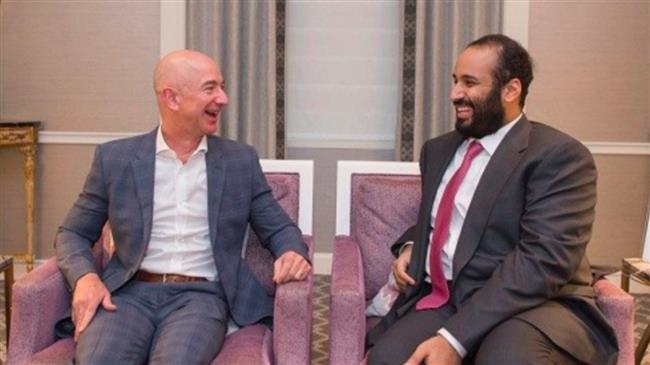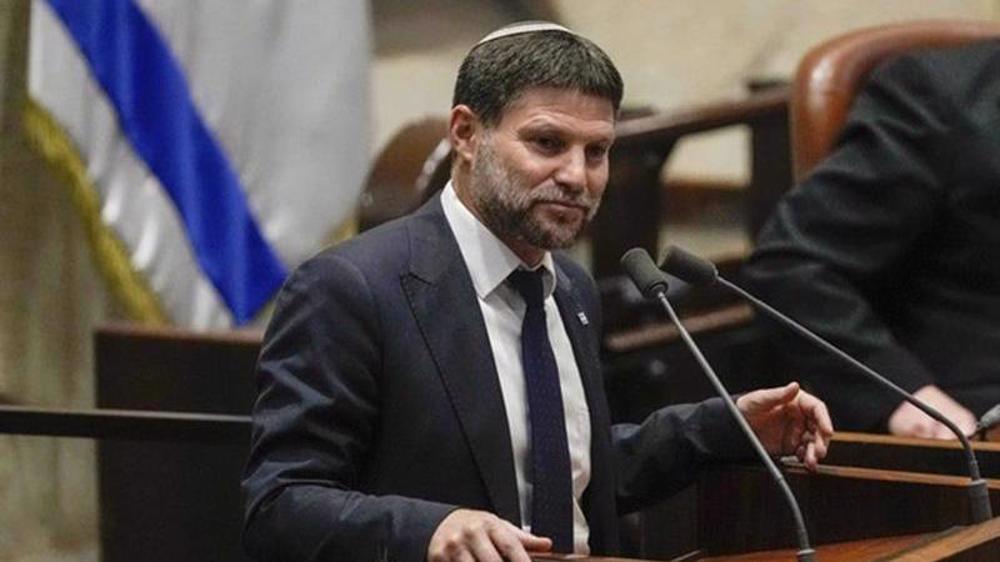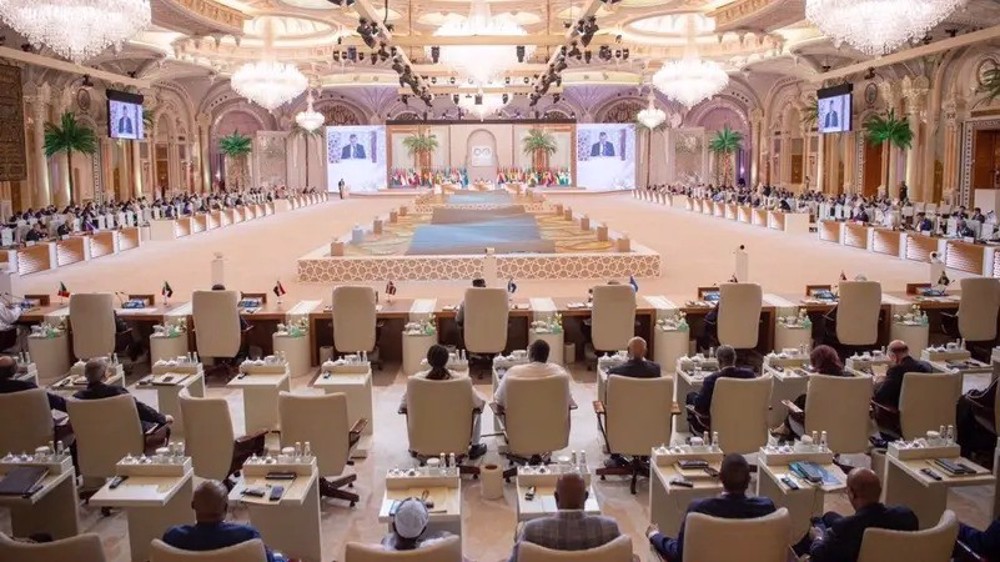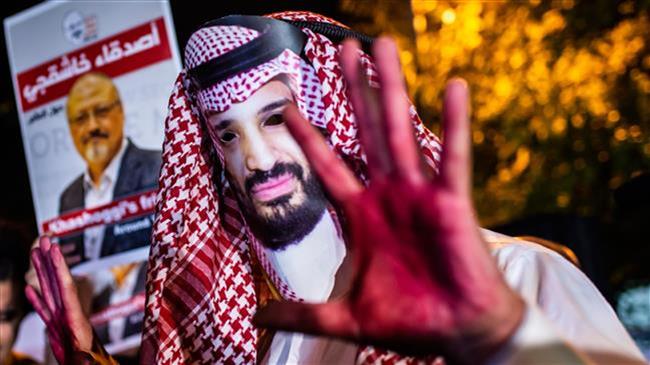Bin Salman hacked Washington Post owner's phone by malicious WhatsApp file: Probe
A new investigation shows the mobile phone of Amazon CEO and Washington Post owner Jeff Bezos was hacked in 2018 after receiving a WhatsApp message sent from a number belonging to Saudi Crown Prince Mohammed bin Salman (MbS).
The digital forensic analysis, whose results were published by The Guardian on Tuesday, found that it is “highly probable” that the intrusion into Bezos’ phone was triggered by an infected video file sent from bin Salman’s account.
Speaking on condition of anonymity, sources told The Guardian that the two men had been having a seemingly friendly WhatsApp exchange when, on 1 May 2018, the unsolicited file was sent.
Large amounts of data were acquired from Bezos’s phone within a matter of hours, according to a person familiar with the matter.
The Financial Times reported that the malicious file was sent weeks after the pair exchanged numbers at a dinner in Los Angeles.
Cybersecurity expert Anthony Ferrante, who conducted the analysis, said he determined with a “medium to high degree of confidence” that dozens of gigabytes were exfiltrated, possibly with Pegasus spying software.
Saudi Arabia’s US Embassy denied the hacking allegation against the Saudi crown prince.
Saudi experts told The Guardian that Bezos was probably targeted because of his ownership of The Washington Post and its coverage of Saudi Arabia.
Recent media reports that suggest the Kingdom is behind a hacking of Mr. Jeff Bezos' phone are absurd. We call for an investigation on these claims so that we can have all the facts out.
— Saudi Embassy (@SaudiEmbassyUSA) January 22, 2020
It came one year after private information about Bezos was leaked to the American tabloid The National Enquirer.
In January 2019, it published text messages between the billionaire and former Fox television presenter Lauren Sanchez, saying, Bezos had been “caught cheating on his wife of 25 years with the spouse of a Hollywood mogul!”
A month after the publication of that alleged affair, Bezos accused the American Media Incorporated (AMI), The National Enquirer's parent company, of “extortion and blackmail,” saying it had threatened to publish his intimate photos unless he said publicly that the tabloid’s reporting was not politically motivated.
Bezos also stressed that The Washington Post’s “unrelenting coverage” of the murder of dissident Saudi journalist Jamal Khashoggi, a columnist for The Washington Post, was “undoubtedly unpopular in certain circles.”
In an op-ed for The Daily Beast in March 2019, Bezos’ security consultant, Gavin de Becker, wrote, “Our investigators and several experts concluded with high confidence that the Saudis had access to Bezos’ phone, and gained private information.”
Khashoggi — an outspoken critic of the heir to the Saudi throne — was killed and his body was dismembered by a Saudi hit squad after being lured into the kingdom’s consulate in Istanbul, Turkey, on October 2, 2018.
The CIA spy agency concluded that the Saudi crown prince had ordered the assassination.
Agnes Callamard, the UN rapporteur investigating Khashoggi's killing, also found “credible evidence” bin Salman and other senior Saudi officials were responsible for the killing.
Middle East expert Andrew Miller said if Bezos had been targeted by bin Salman, it reflected the “personality-based” environment in which the heir to the Saudi throne operates.
“He probably believed that if he got something on Bezos it could shape coverage of Saudi Arabia in the Post. It is clear that the Saudis have no real boundaries or limits in terms of what they are prepared to do in order to protect and advance MBS, whether it is going after the head of one of the largest companies in the world or a dissident who is on their own,” he said.
World leaders, states hail ICC arrest warrants against Netanyahu, Gallant
VIDEO | Israeli policies strangle Palestinian agriculture, economy
Iran's president offers condolences to Pakistan over terrorist attack
Canada’s Yukon town council at standstill over refusing oath to King Charles
Yemen's Houthi calls for jihad to protect Palestine against Israel
VIDEO | Internal rifts within Israel
Russia launches 'ICBM' for first time against Ukraine: Kiev
Scores killed as Takfiri terrorists target Shia Muslims in Pakistan
















 This makes it easy to access the Press TV website
This makes it easy to access the Press TV website